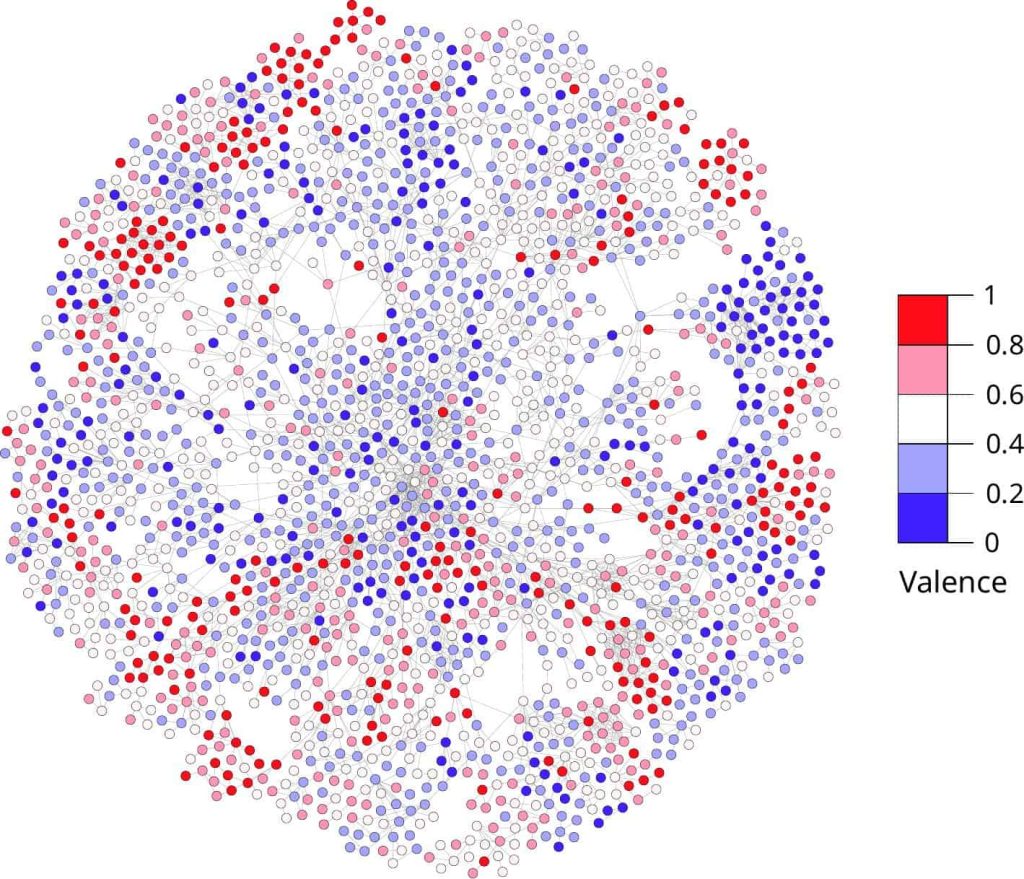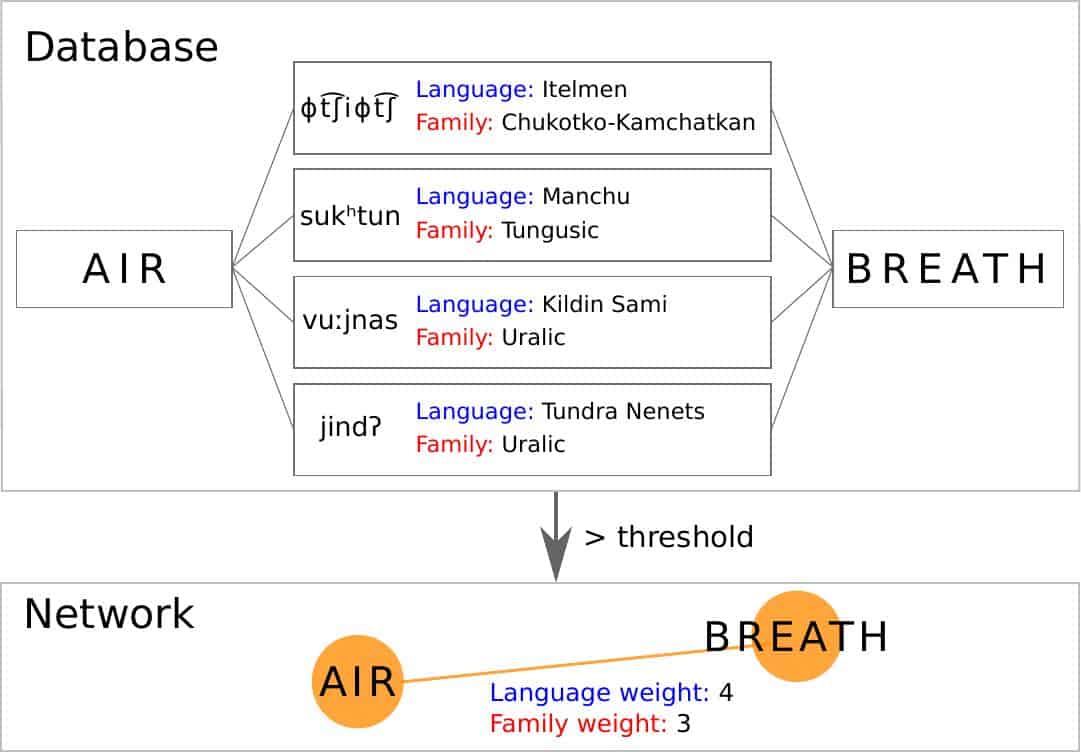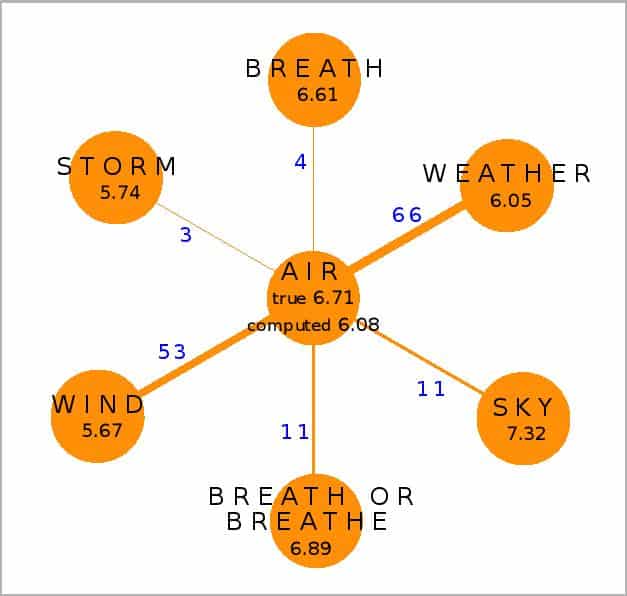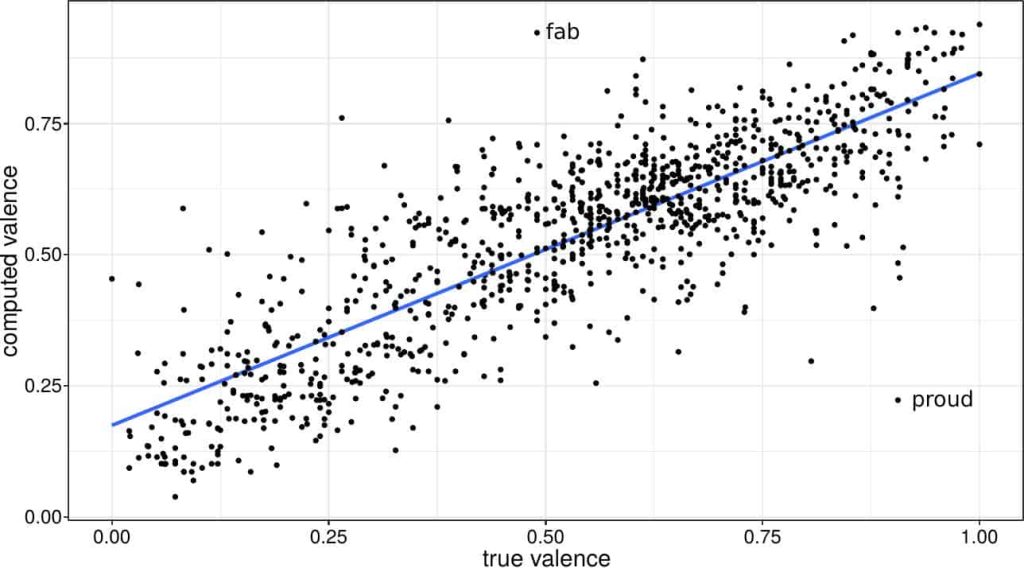ANNA DI NATALE:
“DOES LANGUAGE ENCODE AFFECTIVE MEANING?”
Our answer is yes!
In the paper “Colexification networks encode affective meaning,” which I wrote together with Max Pellert and my supervisor David Garcia and that just appeared in the journal Affective Science, we analyzed a word network, the one determined by colexification, and find that words cluster on the basis of their valence, arousal and dominance.
This discovery proves that colexification links carry affective meaning and could be deployed to expand pre-existing affective lexica.

Colexification is a linguistic idea and happens when two different concepts are conveyed with the same word in one language, as for example the concepts for “breath” and “air.” These instances have been collected in a project led by Johann-Mattis List and subsequently expanded.
We also deployed online dictionaries to automatically build two additional networks on the basis of an approximation of the concept of colexification.

We considered two affective lexica, WKB (Warriner et al., 2013) and NRC VAD (Mohammad, 2018) and interpolate the affective values of words in the colexification network on the basis of the ground truth ratings of their neighbors. We did so by computing the mean of the ratings of the neighbors of each word, as for example with the word “air.”

We compared the performance of our algorithm on a 75/25 split cross validation with machine learning techniques by Mandera et al. and find that the two methods have comparable results, and that the colexification based one achieves higher coverage.



